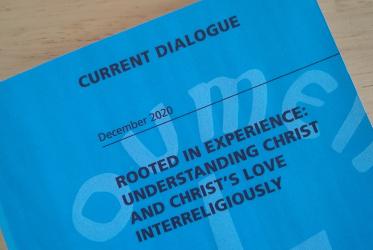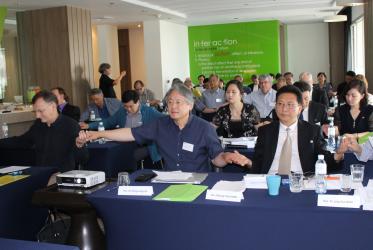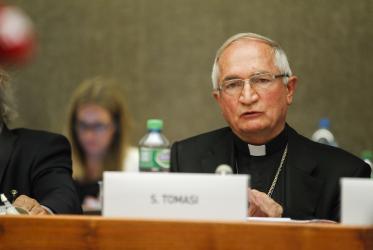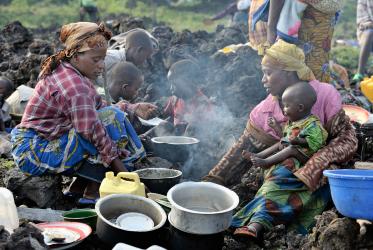Displaying 81 - 100 of 240
Peace and unity on the Korean Peninsula matters globally
25 February 2021
Rev. Shin Seung-min: “We want to create hope, not despair”
22 December 2020
Education has a crucial role for sustainable peace in Iraq
18 December 2020
WCC condemns killing of schoolchildren in Cameroon
26 October 2020
Current dialogue
05 August 2020
Vesak Day commemorated at the UN
11 May 2020
















